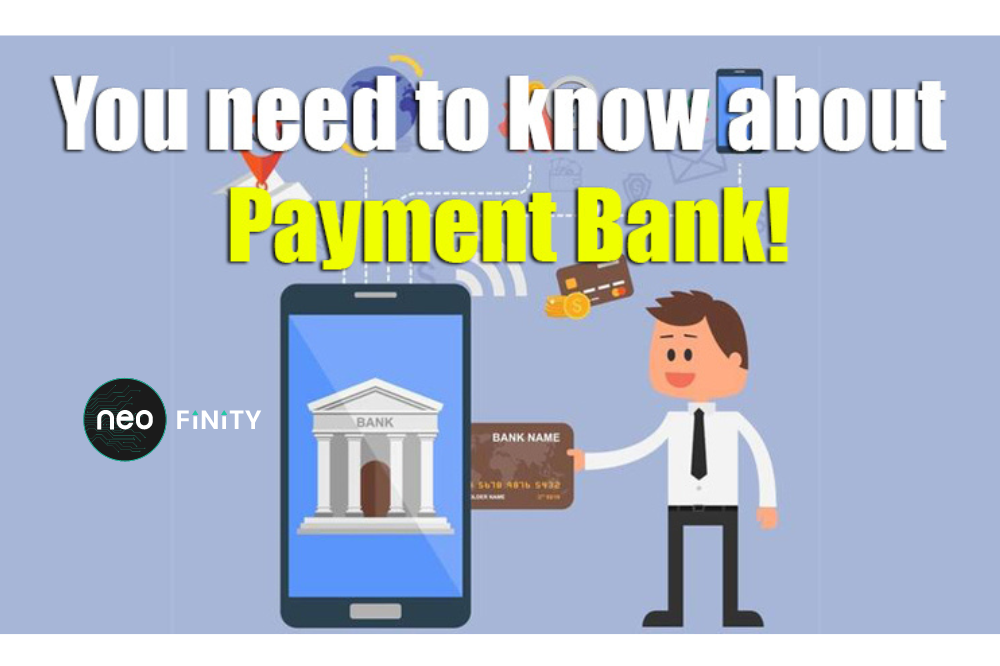When it comes to sending and receiving money, you may use different payment methods that conduct the transaction processes from one bank account to another. But, did you know there is a new type of bank which just deals with payment transactions? Yes, you heard it right! This new type of financial institution is called payment bank. It utilises a Unified Payments Interface (UPI) which you can integrate into your mobile phones to make cashless payments. Payments banks can allow you to have a basic savings account where RBI will set the deposit limit. Though these banks don’t provide any interests like traditional banks, they assure rapid transactions.
Payment banks offer modern payment and transaction solutions which are fast and secure, just like our Neofinity financial solutions. Blended with smart capabilities, our fintech solutions are mobile-friendly, making payments seamless and hassle-free.
Here we will dive deeper into the realm of Payment Banks in India.
What is a Payments Bank?
To know more about payments banks let’s understand what is payment? It is a process of transfer of money or valuable items or equivalent from one entity to another. As for what is payment bank? It significantly means the financial institution that specifically manages payments.
Payment banks were introduced in India in 2014 by the Reserve Bank of India (RBI) to expand financial inclusion. These banks provide basic banking solutions to individuals who are underbanked or unbanked. What makes payment banks different from traditional banks is that they do not offer credit or loan processes.
People in India can deposit up to INR 2 Lakhs in their payments bank accounts. Airtel Payment Bank, Paytm Payment Bank, Fino Payments Bank, Jio Payments Bank, NSDL Payments Bank and DBS Digibank are some of the payments banks that are currently present in India.
Features of Payment Banks
Payments banks come with the following features:
Banking Tasks
Payments banks are created to solely perform basic banking services as stated by the Banking Regulation Act of 1949. These banks only deal with payment transactions and do not offer credits or loans to people, like conventional banks do.
Deposits/Withdrawal
People who have accounts with payment banks can deposit money (whose limit is set by the RBI) and withdraw the same from ATM or any other financial service provider.
Cards for Transactions
Payment banks issue debit/ATM cards for payment transactions. Furthermore, people can add their payment account details in UPIs and make cashless transactions, which are secure and fast.
Licensing
The licensing of payments banks is granted to grocery chains and mobile companies so that they cater to individuals and small businesses.
Activities That Can Be Performed By Payment Banks
The activities payment banks perform are as follows:
Fund Transfer
Payment Banks allow individuals and businesses to make financial transactions like money transfers, investing in mutual funds and insurance services.
Business Correspondant
Payment Banks ensure transaction and remittance services, deposit acceptance, internet banking and working as business correspondent for traditional banks.
Banking Activities
Payment only carries out specific banking activities as laid out by the Banking Regulation Act of 1949.
Activities That Cannot Be Undertaken By Payment Banks
Though payment banks ensure smooth payment processes, their activities are limited. There are many activities that payments banks cannot perform, some of them are as follows:
Lending Prohibition
Payments banks are subjected to offer basic banking services to people which would include money transfers, insurance services and mutual funds investment. But, if you want to take a loan, you cannot do so from a payment bank.
Cannot Form Subsidiaries
Payment banks cannot create subsidiaries to conduct non-banking financial services.
No Credit Cards
Payments banks can only issue ATM cards or debit cards. So, if you want a credit card, you need to get in touch with other financial institutions as they do not provide credit cards.
Advantages of Having Payment Banks
Payment banks offer the following benefits:
- Payment banks allow people with no bank accounts to gain access to a formal banking system.
- These banks help to speed up financial inclusion.
- They reach out to people from rural areas.
- With payments banks, financial literacy will increase amongst people which would help India fight against poverty.
- These banks help increase the flow of money in the banking system.
- Payment banks efficiently manage low-value, high-volume transactions.
- Payment banks are great alternatives to traditional banks.
Conclusion
For faster and smarter payment transactions, you can create an account in payment banks. Though they don’t offer lending services, they make money transfers, mutual funds investments and insurance services seamless and hassle-free. Moreover, payment banks guarantee to offer financial services to unbanked people. All they have to do is create a savings account at the payments banks.
You can also consider using our premium fintech solutions like NeoZAP which would meet all your payments with a simple tap or swipe.

Leave a Reply